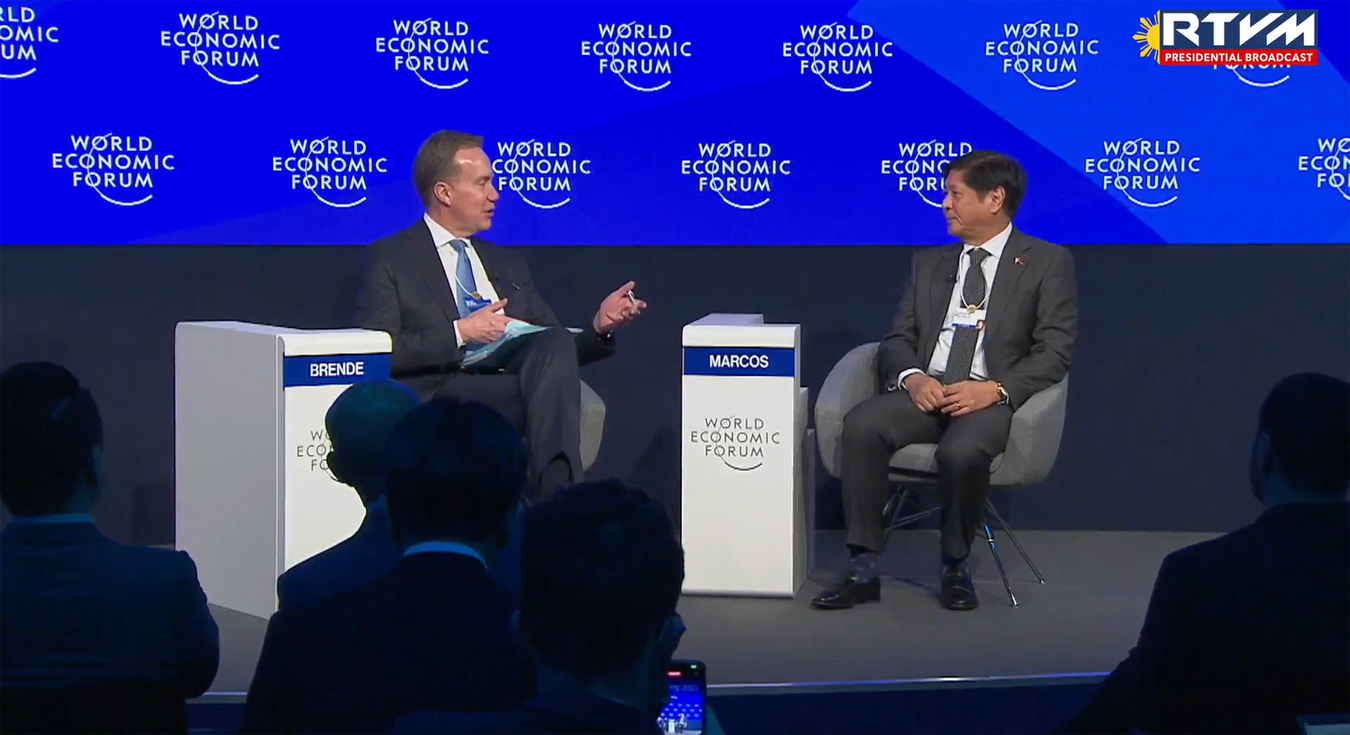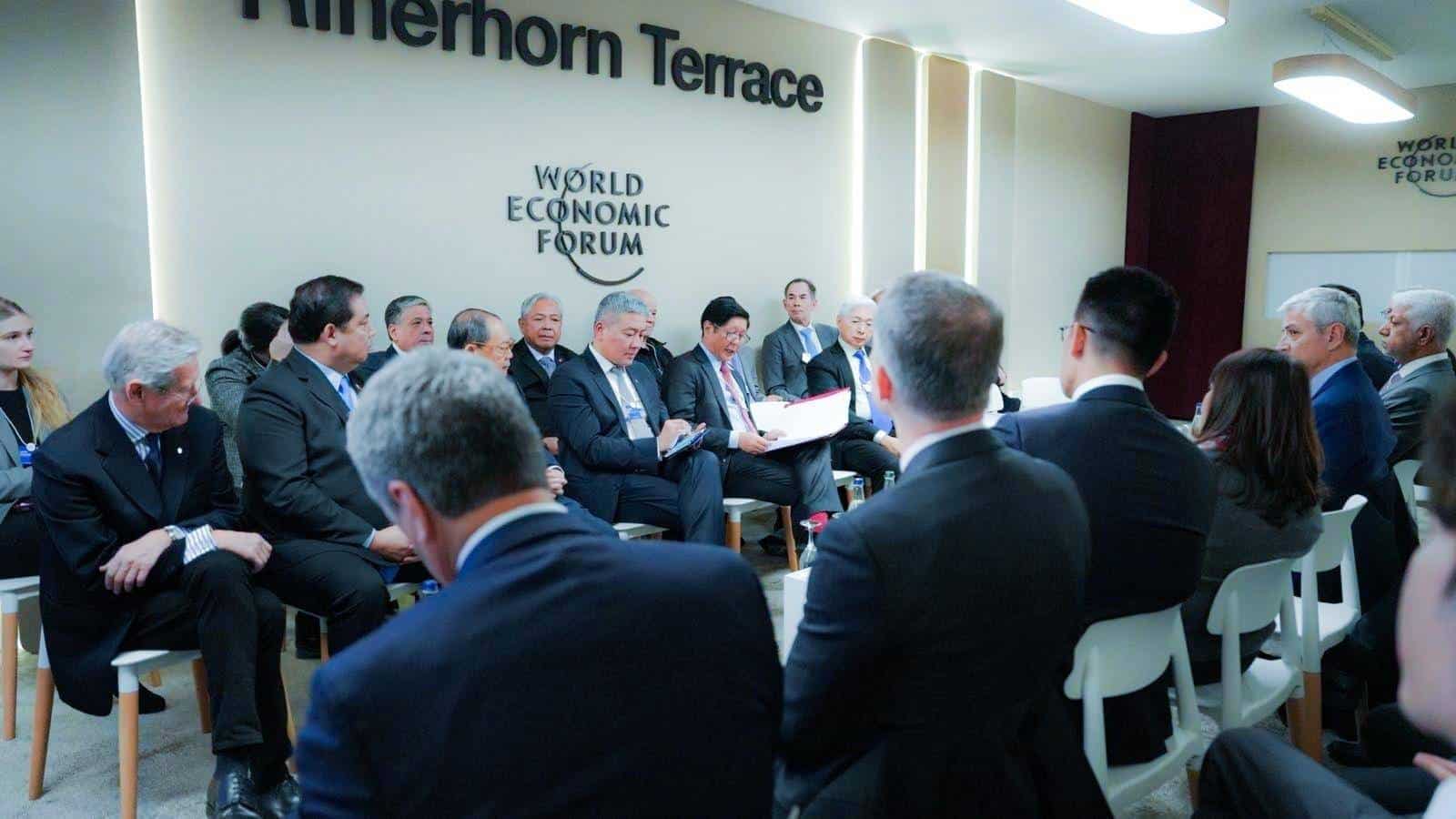Thank you, Mr. President, Your Excellencies, ladies and gentlemen. And by the way, it is a saying in English that it is the prerogative of an intelligent mind to change their opinion. [laughter] So I think you are in good company.
I am honored to be part of this session at a time when the global economy faces,
as attested to by the IMF, a tougher year than the one we just left behind. However, we in the Philippines welcome this year with guarded optimism as positive indicators point to a better than expected end-of-year economic performance on our end.
Such performance was achieved even as our earnest effort at recovering from the deleterious impact of the COVID-19 pandemic.
Our recovery has been made all the more challenging by the uncertainty that was induced by ongoing conflict, coupled with tensions amplified and magnified along economic and social equity fault lines in many parts of the world.
We join other countries in bearing witness to the emergence of cracks and fissures of a scale that compromise the systems and institutions of global wide economic interdependence.
The interlinkages and integration represented by the complex array of supply and production chains have become the most ubiquitous feature of the modern global economy.
Its sufficient and effective functioning has not only contributed to a boom in global manufacturing and allied services but has also played a role in the rapid prosperity of the country’s position, along such change.
New industries, companies, investments, and jobs have been created. The incentive for innovation has become much more attractive. We grew together and poverty was reduced.
But the confluence of forces that bore upon us the past years magnifies the differences and have shown the vulnerabilities in the underlying infrastructure that facilitate global supply chain. We have a perfect example here from the comments of [PM De Croo?] where he highlights the problem with the energy supply of Europe whereas perhaps in Asia, the problem manifested itself in food supply and food affordability.
Whether natural or man-made, such disruptions and breakdowns have catastrophic implications for global business. So I’m pleased to share with you that this government, that I have been putting together has put forth policies and executed strategies intended to boost both robustness and resilience of often quite complex interconnected global supply and production chains.
We do this by addressing our ability to keep
the wheels of economy going amid severe disruption, and our ability to bounce back from adversity.
The Philippine economy will post growth of at least 7 percent for last year, the highest in ASEAN and one of the highest in the Asia-Pacific region, supported by strong macroeconomic fundamentals and
prudent fiscal policies. We have been making connectivity a priority whether traditionally by land, sea, and air. And now of course, in the digital and meta realm.
The Philippines recognizes the importance of mitigating the impact of climate change
on economic growth and resilience.
To this end, it is our top priority to design and build climate-resilient infrastructure, programs,
and projects. We have allocated 9 percent of our national budget towards initiatives to support conservation, climate change adaptation, and disaster risk reduction. I have committed to work to increase this figure to an average of 15 percent annually.
Through our “Build, Better, More” flagship program, we have placed infrastructure development as the pinnacle of our vision for an equitable, prosperous, and resilient Philippines by 2040.
We recognize the critical role of the private sector partners to enable the realization of these high goals. The recent amendments to our Build-Operate-Transfer (BOT) Law address concerns regarding the financial viability
and bankability of public-private partnerships and the concerns on potential delays
that might impede implementation. We aim to raise the confidence of investors, especially those that will benefit the social sectors of health, education, and agriculture.
For this reason, we have taken a proactive approach. We have created a Private Sector Advisory Council, some members who are here with us and we have formulated many strategies so that we can position the Philippines properly for the development and evolution of the new global economy.
That is just a general overview of the effects as we have felt them in the Philippines.
Thank you very much and good afternoon. [applause]
--- END ---
Watch here: High-Level Dialogue - Investing in Infrastructure for Resilience
Locaion: Davos, Switzerland




